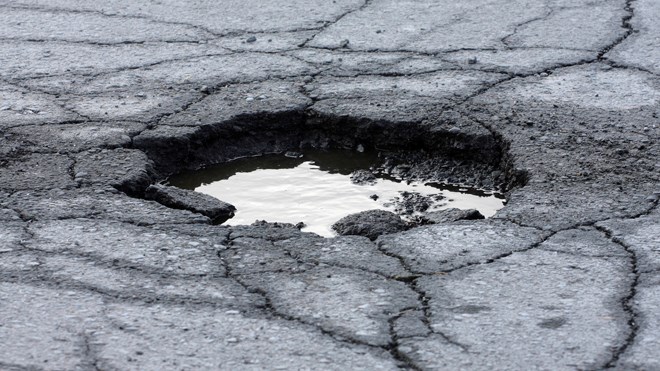The city has almost doubled its budget for a program that aims at the annual pothole problems that sprout each spring.
While many residents are familiar with the pothole patrol – the roving band of city workers that fill in the dreaded holes in various parts of Greater Sudbury – this program goes a little deeper.
Tony Cecutti, the city GM of infrastructure, said rather than just filling in holes, crews remove small sections of roads where potholes are a perennial issue and repave it.
"It's a rehabilitation technique, it's not a reconstruction technique,” Cecutti said. “We take off one layer of asphalt and use the spreader to put it down. It's normally over the full width of the travelled lane.
"That program is intended to take the areas with the worst pavement condition index when we don't have money set aside to do a full rebuild of the whole road."
Aimed mainly at arterial roads – roads that handle a lot of traffic in key areas – Cecutti said they are spending $2 million this year, instead of the usual $1 million.
"We're not rebuilding sewers or watermains or anything like that," he said. "We're trying to extend the life cycle of the asphalt for a few more years until we can get it in its normal cycle for a full rebuild.
"So we've expanded the scope of that to get a lot of the arterial roads that were experiencing potholes. We've been out with that, and lots of compliments from people driving around in the community.”
While arterial roads are getting the most attention, less busy roads that are in really bad shape are also getting attention.
"We're hoping that next spring, we won't see as many potholes in the area where they traditionally form."
"We just felt the frequency of some of the potholes in some traditional areas required a little bigger attack," he said. "We're hoping that next spring, we won't see as many potholes in the area where they traditionally form (and) that will give people a more positive experience next winter and next spring."
